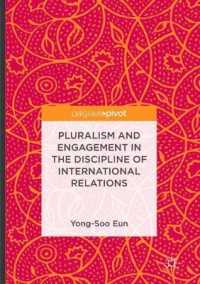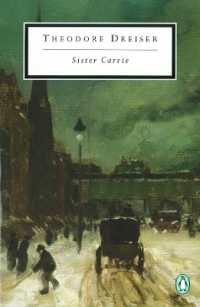- ホーム
- > 洋書
- > 英文書
- > History / World
基本説明
This is not an economic history. Rather, the book shows how acceptance of confiscation was won, and how theological advice was essential to the success of what is sometimes called a crucial if early stage of confessional state-building.
Full Description
This is a study of the religious controversy that broke out with Martin Luther, from the vantage of church property. The controversy eventually produced a Holy Roman Empire of two churches.
This is not an economic history. Rather, the book shows how acceptance of confiscation was won, and how theological advice was essential to the success of what is sometimes called a crucial if early stage of confessional state-building. It reviews the character of sacred property in the late Middle Ages, surveys confiscations in Reformation Germany on illustrative examples, summarizes the League of Schmalkalden's defense of confiscations, systematically studies theological memoranda that shaped a common policy in the League, and shows the role of that common position in religious politics.
Contents
List of Illustrations
Abbreviations
Preface
Introduction
1. Church Property
2. Church Robbers
3. The League of Schmalkalden and the Imperial Chamber Court
4. Theological Advice
5. Toward a Common Position
6. The Schmalkald Recommendation of 1540
7. The Colloquies, the War, and the Peace
8. Dominions
Conclusion: Prospect/Retrospect
Appendix I. The Theological Recommendation of 1540
Appendix II. The Title Page of Martin Luther's A Terrible History and Judgement of God on Thomas Müntzer
Bibliography
Index
-

- 電子書籍
- 悪人面したB級冒険者 主人公とその幼馴…
-

- 電子書籍
- 真珠郎 角川文庫






